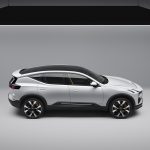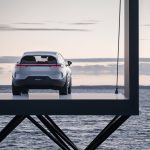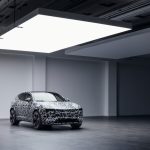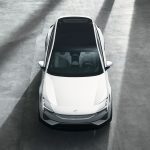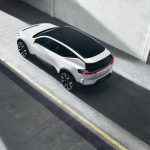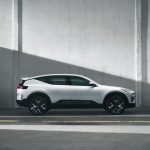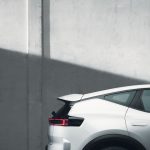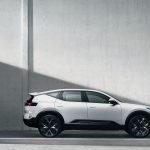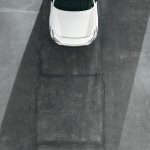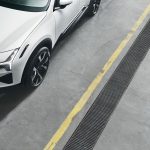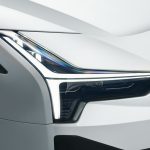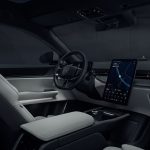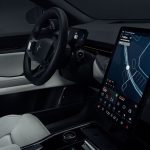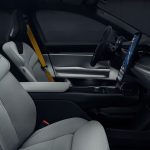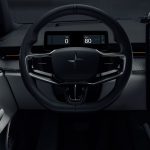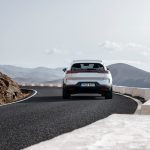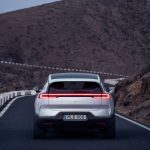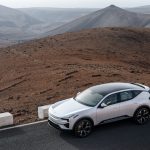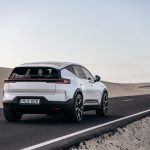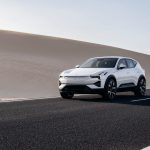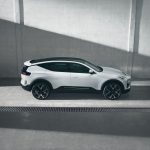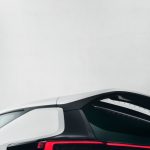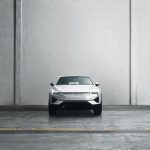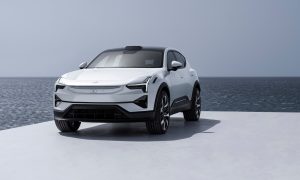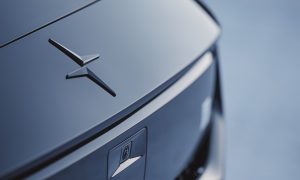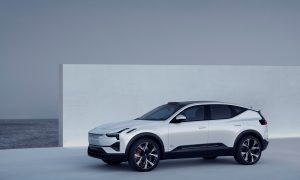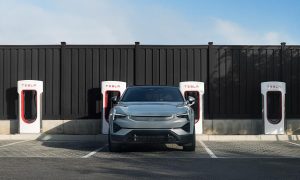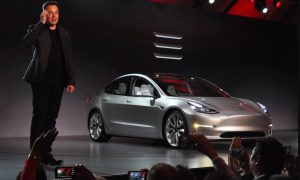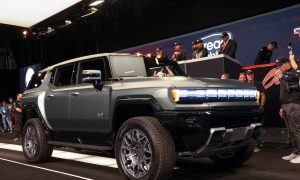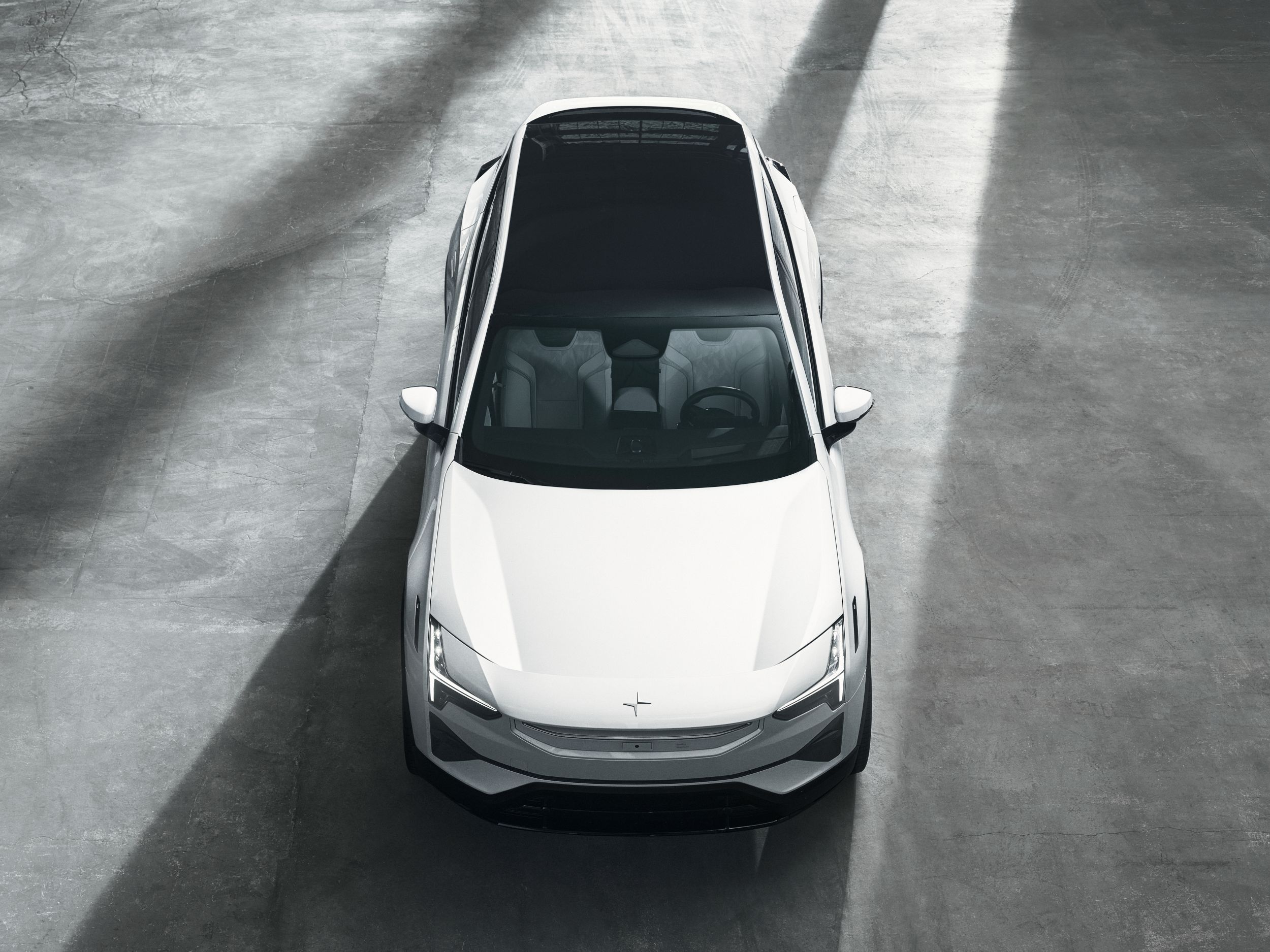

News
Polestar 3 all-electric SUV unveiling: 379-mile WLTP range, 517 horsepower, 111 kWh battery
Polestar has unveiled its all-electric SUV, named the Polestar 3, aiming to enter a highly-competitive market and outpoint potential competitors with comparable offerings, including Tesla, Ford, Rivian, and others. Electric vehicle offerings are becoming more plentiful, and Polestar is attempting to capture a considerable portion of the market by offering a quality design, comparative performance, and a competitive range rating.
Polestar launched the Polestar 3 on Wednesday at an unveiling event held in Copenhagen, Denmark. Owned by Geely Motors and Volvo, Polestar has offered the Polestar 2 for nearly two years, with the 4, 5, and 6 vehicles all currently under development. The automaker has shared the Polestar 3 concept images on several occasions, but this is the first time people are seeing the launch of the vehicle directly from the company in a live setting.
“Polestar 3 reimagines the SUV through premium electric performance and innovative, sustainable technology. Changing the automotive landscape while keeping the environment a priority,” Polestar describes the vehicle on its website.
Built in the United States for U.S. Customers
There’s been a lot of talk about electric vehicles and production inside the United States as the Biden Administration has launched several large bills to incentivize not only domestic EV production but also the purchase of EVs by consumers. However, Polestar committed long ago to building the Polestar 3 in the United States, committing to the strategy in June 2021.
- Credit: Polestar
- Credit: Polestar
- Credit: Polestar
“We will build in America for Americans,” Polestar CEO Thomas Ingenlath said last year. “Polestar 3 is planned to be launched in 2022 as a premium electric performance SUV that will define the look of SUVs in the electric age. It will also be the first Polestar vehicle to be built in America.”
The Polestar 3 will be built at the Volvo Cars plant in Charleson, South Carolina, and is intended to be one of the most climate-responsible cars ever built.
“Polestar 3 is a powerful electric SUV that appeals to the senses with a distinct, Scandinavian design and excellent driving dynamics,” Ingenlath, said while reaffirming Polestar’s plans to build the car in the U.S. “It takes our manufacturing footprint to the next level, bringing Polestar production to the United States. We are proud and excited to expand our portfolio as we continue our rapid growth.”
- Credit: Polestar
- Credit: Polestar
- Credit: Polestar
- Credit: Polestar
- Credit: Polestar
- Credit: Polestar
- Credit: Polestar
- Credit: Polestar
Next-Gen EV Architecture crafted by Volvo
The Polestar 3 has been Volvo’s introduction to the development of EV architecture. Polestar said the Polestar 3’s new, next-generation architecture has been designed from scratch for full electrification. Supported by Google’s Android Automotive OS infotainment system and featuring high-end, safety-focused autonomous driving features, Polestar intends to launch state-of-the-art and completely unique EV tech, starting with the Polestar 3 in specific.
Focusing on safety and ADAS tech in the Polestar 3
Polestar 3 offers five radar modules, five external cameras, and twelve ultrasonic sensors, enabling advanced safety features. The SmartZone and front aero wing continuously collect information through forward-facing sensors, a heated radar module, and camera. Polestar now says that this is a “signature” of the company’s design.
In the cabin, Polestar has two closed-loop driver monitoring cameras that will track the driver’s eyes to emphasize safer driving. “The cameras monitor the driver’s eyes and can trigger warning messages, sounds and even an emergency stop function when detecting a distracted, drowsy or disconnected driver,” Polestar said.
- Credit: Polestar
- Credit: Polestar
- Credit: Polestar
- Credit: Polestar
111 kWh battery pack, 379-mile WLTP-rated range, heat pump
Polestar 3 will pack a 111 kWh battery pack offering a generous but preliminary range rating of 379 miles rated by the WLTP. Expect this number to be lower when the EPA tests the vehicle, which has not happened quite yet, according to the agency’s Vehicle Database.
Polestar’s 111 kWh battery pack features prismatic cells housed in a protective aluminum case, reinforced by boron steel and liquid cooling. Polestar also made a heat pump standard on the Polestar 3, helping with efficiency and range degradation, especially in colder climates.
- Credit: Polestar
- Credit: Polestar
- Credit: Polestar
- Credit: Polestar
- (Credit: Polestar)
- Credit: Polestar
- Credit: Polestar
- Credit: Polestar
Polestar 3 Order Availability, optional Pilot Pack with LiDAR from Luminar
Polestar said the Polestar 3 will be available for order today. Polestar 3 orders with an optional Pilot Pack with LiDAR from Luminar will be available from Q2 2023. This package adds a supplemental control unit from NVIDIA, three more cameras, four ultrasonic sensors, and cleaning for both front and rear-view cameras. “This enables enhanced 3D scanning of the car’s surroundings in greater detail and helps prepare the car for autonomous driving,” Polestar said.
Production to begin in China, Q4 2023 Deliveries
Initial production will start at Volvo’s facility in Chengdu, China, in an incremental ramp-up phase, Polestar said, which is set to begin in mid-2023. Its launch price is €89,990 ($87,110). The first deliveries will take place in Q4 2023.
Volvo’s Ridgeville, South Carolina facility will build the vehicle to supply North American and other markets. Production will switch from China to the United States, and initial deliveries of units produced in South Carolina will begin in mid-2024.
I’d love to hear from you! If you have any comments, concerns, or questions, please email me at joey@teslarati.com. You can also reach me on Twitter @KlenderJoey, or if you have news tips, you can email us at tips@teslarati.com.
Elon Musk
Tesla reveals it is using AI to make factories more sustainable: here’s how
Tesla is using AI in its Gigafactory Nevada factory to improve HVAC efficiency.

Tesla has revealed in its Extended Impact Report for 2024 that it is using Artificial Intelligence (AI) to enable its factories to be more sustainable. One example it used was its achievement of managing “the majority of the HVAC infrastructure at Gigafactory Nevada is now AI-controlled” last year.
In a commitment to becoming more efficient and making its production as eco-friendly as possible, Tesla has been working for years to find solutions to reduce energy consumption in its factories.
For example, in 2023, Tesla implemented optimization controls in the plastics and paint shops located at Gigafactory Texas, which increased the efficiency of natural gas consumption. Tesla plans to phase out natural gas use across its factories eventually, but for now, it prioritizes work to reduce emissions from that energy source specifically.
It also uses Hygrometric Control Logic for Air Handling Units at Giafactory Berlin, resulting in 17,000 MWh in energy savings each year. At Gigafactory Nevada, Tesla saves 9.5 GWh of energy through the use of N-Methylpyrrolidone refineries when extracting critical raw material.
Perhaps the most interesting way Tesla is conserving energy is through the use of AI at Gigafactory Nevada, as it describes its use of AI to reduce energy demand:
“In 2023, AI Control for HVAC was expanded from Nevada and Texas to now include our Berlin-Brandenburg and Fremont factories. AI Control policy enables HVAC systems within each factory to work together to process sensor data, model factory dynamics, and apply control actions that safely minimize the energy required to support production. In 2024, this system achieved two milestones: the majority of HVAC infrastructure at Gigafactory Nevada is now AI-controlled, reducing fan and thermal energy demand; and the AI algorithm was extended to manage entire chiller plants, creating a closed-loop control system that optimizes both chilled water consumption and the energy required for its generation, all while maintaining factory conditions.”
Tesla utilizes AI Control “primarily on systems that heat or cool critical factory production spaces and equipment.” AI Control communicates with the preexisting standard control logic of each system, and any issues can be resolved by quickly reverting back to standard control. There were none in 2024.
Tesla says that it is utilizing AI to drive impact at its factories, and it has proven to be a valuable tool in reducing energy consumption at one of its facilities.
Elon Musk
Tesla analysts believe Musk and Trump feud will pass
Tesla CEO Elon Musk and U.S. President Donald Trump’s feud shall pass, several bulls say.

Tesla analysts are breaking down the current feud between CEO Elon Musk and U.S. President Donald Trump, as the two continue to disagree on the “Big Beautiful Bill” and its impact on the country’s national debt.
Musk, who headed the Department of Government Efficiency (DOGE) under the Trump Administration, left his post in May. Soon thereafter, he and President Trump entered a very public and verbal disagreement, where things turned sour. They reconciled to an extent, and things seemed to be in the past.
However, the second disagreement between the two started on Monday, as Musk continued to push back on the “Big Beautiful Bill” that the Trump administration is attempting to sign into law. It would, by Musk’s estimation, increase spending and reverse the work DOGE did to trim the deficit.
Every member of Congress who campaigned on reducing government spending and then immediately voted for the biggest debt increase in history should hang their head in shame!
And they will lose their primary next year if it is the last thing I do on this Earth.
— Elon Musk (@elonmusk) June 30, 2025
President Trump has hinted that DOGE could be “the monster” that “eats Elon,” threatening to end the subsidies that SpaceX and Tesla receive. Musk has not been opposed to ending government subsidies for companies, including his own, as long as they are all abolished.
How Tesla could benefit from the ‘Big Beautiful Bill’ that axes EV subsidies
Despite this contentious back-and-forth between the two, analysts are sharing their opinions now, and a few of the more bullish Tesla observers are convinced that this feud will pass, Trump and Musk will resolve their differences as they have before, and things will return to normal.
ARK Invest’s Cathie Wood said this morning that the feud between Musk and Trump is another example of “this too shall pass:”
BREAKING: CATHIE WOOD SAYS — ELON AND TRUMP FEUD “WILL PASS” 👀 $TSLA
She remains bullish ! pic.twitter.com/w5rW2gfCkx
— TheSonOfWalkley (@TheSonOfWalkley) July 1, 2025
Additionally, Wedbush’s Dan Ives, in a note to investors this morning, said that the situation “will settle:”
“We believe this situation will settle and at the end of the day Musk needs Trump and Trump needs Musk given the AI Arms Race going on between the US and China. The jabs between Musk and Trump will continue as the Budget rolls through Congress but Tesla investors want Musk to focus on driving Tesla and stop this political angle…which has turned into a life of its own in a roller coaster ride since the November elections.”
Tesla shares are down about 5 percent at 3:10 p.m. on the East Coast.
Elon Musk
Tesla scrambles after Musk sidekick exit, CEO takes over sales
Tesla CEO Elon Musk is reportedly overseeing sales in North America and Europe, Bloomberg reports.

Tesla scrambled its executives around following the exit of CEO Elon Musk’s sidekick last week, Omead Afshar. Afshar was relieved of his duties as Head of Sales for both North America and Europe.
Bloomberg is reporting that Musk is now overseeing both regions for sales, according to sources familiar with the matter. Afshar left the company last week, likely due to slow sales in both markets, ending a seven-year term with the electric automaker.
Tesla’s Omead Afshar, known as Elon Musk’s right-hand man, leaves company: reports
Afshar was promoted to the role late last year as Musk was becoming more involved in the road to the White House with President Donald Trump.
Afshar, whose LinkedIn account stated he was working within the “Office of the CEO,” was known as Musk’s right-hand man for years.
Additionally, Tom Zhu, currently the Senior Vice President of Automotive at Tesla, will oversee sales in Asia, according to the report.
It is a scramble by Tesla to get the company’s proven executives over the pain points the automaker has found halfway through the year. Sales are looking to be close to the 1.8 million vehicles the company delivered in both of the past two years.
Tesla is pivoting to pay more attention to the struggling automotive sales that it has felt over the past six months. Although it is still performing well and is the best-selling EV maker by a long way, it is struggling to find growth despite redesigning its vehicles and launching new tech and improvements within them.
The company is also looking to focus more on its deployment of autonomous tech, especially as it recently launched its Robotaxi platform in Austin just over a week ago.
However, while this is the long-term catalyst for Tesla, sales still need some work, and it appears the company’s strategy is to put its biggest guns on its biggest problems.
-

 Elon Musk1 day ago
Elon Musk1 day agoTesla investors will be shocked by Jim Cramer’s latest assessment
-

 News6 days ago
News6 days agoTesla Robotaxi’s biggest challenge seems to be this one thing
-

 News2 weeks ago
News2 weeks agoTesla’s Grok integration will be more realistic with this cool feature
-

 Elon Musk2 weeks ago
Elon Musk2 weeks agoElon Musk slams Bloomberg’s shocking xAI cash burn claims
-

 News2 weeks ago
News2 weeks agoTesla China roars back with highest vehicle registrations this Q2 so far
-

 News2 weeks ago
News2 weeks agoTexas lawmakers urge Tesla to delay Austin robotaxi launch to September
-

 News2 weeks ago
News2 weeks agoTesla dominates Cars.com’s Made in America Index with clean sweep
-

 Elon Musk1 week ago
Elon Musk1 week agoFirst Look at Tesla’s Robotaxi App: features, design, and more

